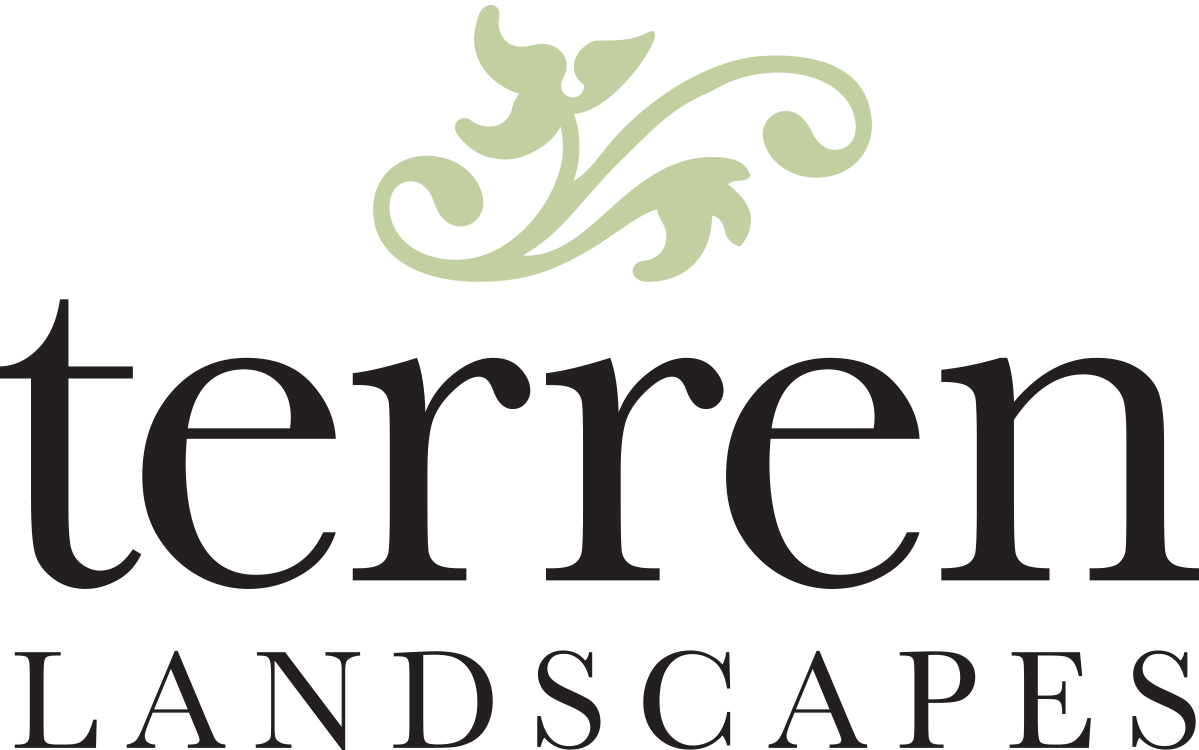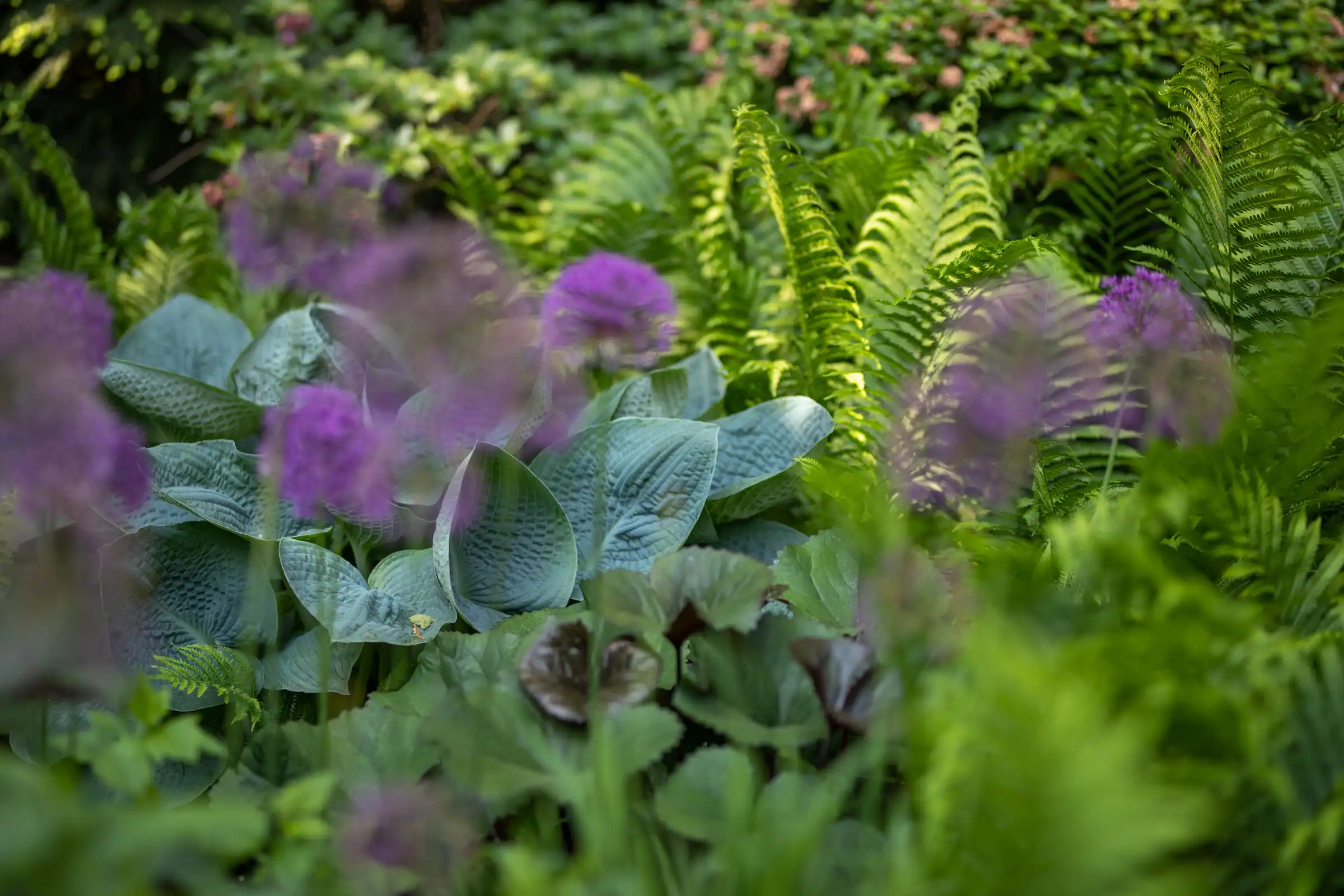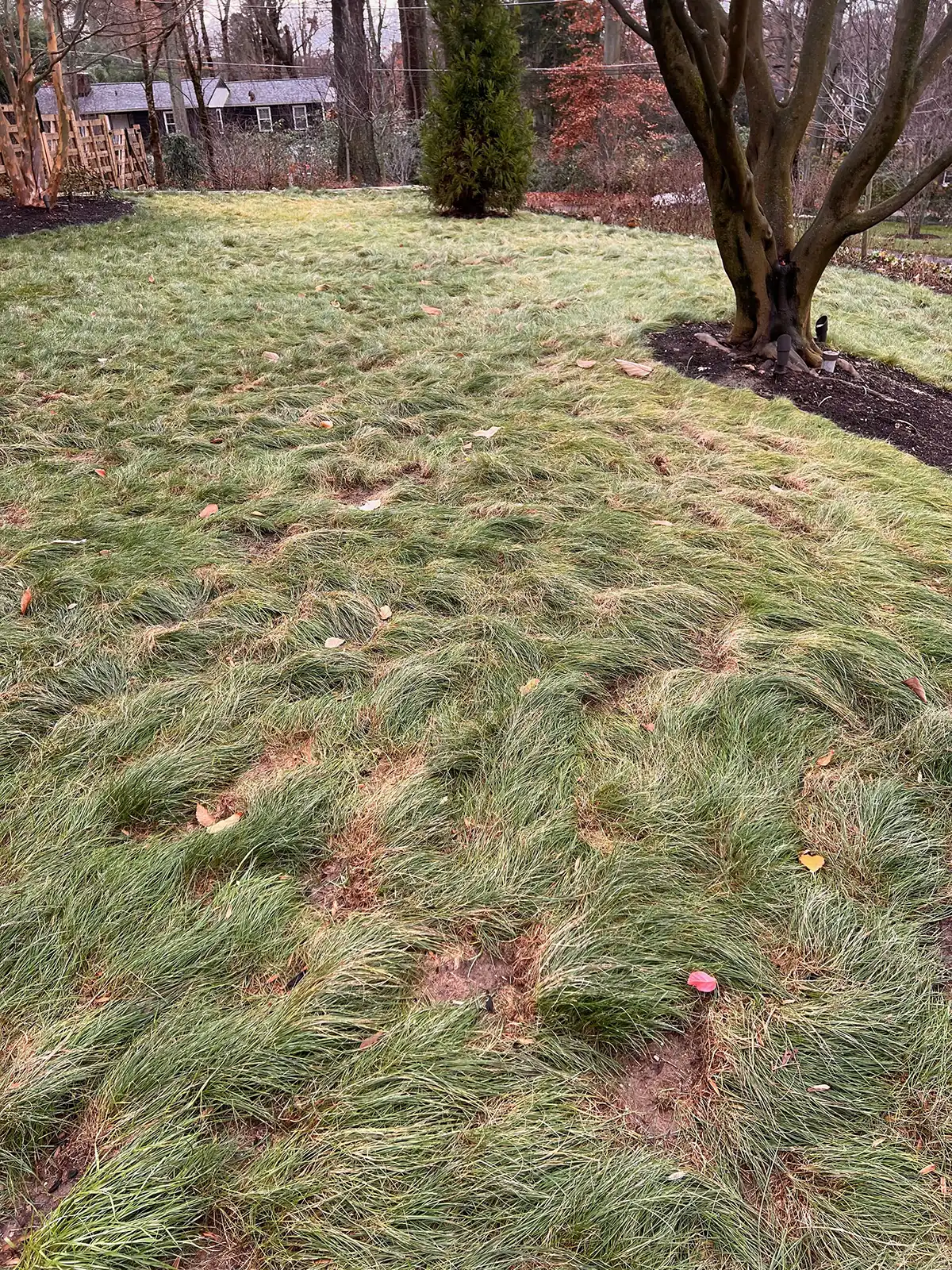There are many wonderful benefits to owning your own home, but having to mow the lawn and rake the leaves yourself is not usually counted among them. While you may have the means to DIY it (if so, check out our pro lawn care tips here), not everyone has that option. Those with physical limitations, a busy schedule or larger-than-average properties may find the quantity and complexity of work overwhelming and unmanageable. For these homeowners, hiring a landscape maintenance company is the best–and maybe only–option.
If you fall into that category, it’s best to learn about standard landscaping services and whether or not you need them before contacting companies for an estimate. After reading through, it may be helpful to mark down those you decide to pursue and have the list ready when you start calling around. Doing so will help you avoid falling victim to predatory sales tactics and ensure your contract contains only what you actually need.
Before you’re done, make sure to read our note about finding a good landscaper at the bottom. A trustworthy account manager will steer you in the right direction and provide all the information you need without pressuring or rushing you. If that’s not the vibe you get from them, definitely shop around a bit more.
Below we’ve listed all you need to know about fundamental landscape maintenance and who it’s for. The exact specifications of each service will vary from company to company, but what follows will help you familiarize yourself with what’s out there and what you need before making any calls.
Standard Landscape Maintenance Services:
1. Weekly Lawn Mowing:
As the quintessential “landscaping” service, lawn mowing doesn’t require much introduction. Generally, it includes mowing (obviously), edging the perimeter of the lawn and blowing off hard surfaces on a weekly basis. Some companies also offer bi-weekly visits to help you save some money, but your grass may get a bit long between cuts. If that’s okay with you, ask about it when requesting an estimate to see what kind of deal they offer.
More complex properties with hills and obstacles will take longer to cut and therefore cost more to maintain. Walkways, pools and other hardscape features, for instance, add time to the job by requiring more extensive string-trimming. Tight spaces where only a push mower can reach will have a similar effect, as an extra machine becomes necessary.
But outside of that, there’s relatively few variables to account for. Some companies will offer to “stripe” your lawn in alternating rows or checkerboard patterns for an extra charge. This looks very nice, but has no horticultural benefit, so the choice is yours whether or not it’s worth it.
Do you need it?
Unless you’ve got a “no-mow yard” or a herd of hungry pet goats, lawn mowing is an essential landscape maintenance service you really can’t do without. Even if you don’t mind letting grass grow tall, your neighbors and/or HOA probably do. So make sure weekly mowing is included in your package. No matter how nice the rest of your landscape looks, an overgrown lawn will make it an eyesore every time.
2. Weeding And Weed Control

There is a significant difference between “weeding” and “weed control.” The former is simply the act of pulling existing weeds from the ground by hand (or with hand tools). It may be offered as a one-off service or combined with another–like weekly mowing–to keep garden beds tidy during the season. The latter is a multi-faceted, holistic approach to managing the spread of invasive or nuisance plant life on your property. It often consists of multiple services, like the aforementioned hand weeding, herbicide applications and even regular string trimming of less-visible areas. In some cases, it may be offered as part of a turf care package for your lawn as well.
If you simply want one-off or seasonal weeding visits, most companies will provide them upon request or as part of a pre-mulch “bed prep” service each spring. At Terren, we often provide weekly weeding with our mowing services, which ensures the problem never gets out of hand and limits the time required each week.
If your problem is greater than some hand-weeding can handle, or you’re very picky about maintaining a weed-free property at all times, look for a more comprehensive “weed control” service instead. Just make sure you’re aware of any harmful chemicals (read our blog on Roundup alternatives here…) used in the process before signing on.
Do you need it?
Weeds aren’t “bad” in and of themselves. In fact, with the exception of non-native varieties like lesser celandine or Japanese honeysuckle, most are actually beneficial to local wildlife and biodiversity. So there’s no ecological benefit to eradicating them unless they’re killing your native plants or taking up too much space.
Aesthetically however, it’s a different story. Weeds destroy the manicured look of your garden beds and distract from the beautiful plants already there. So if you’re not so into an au natural look, they’ve gotta go.
For those with smaller properties, a seasonal visit from your landscaper or even an afternoon doing it yourself may be sufficient. But everyone else should look into regular weeding visits or a comprehensive weed control service instead, because maintaining growth at regular intervals is less costly than clearing a large, overgrown property all at once–and it looks a lot nicer, too.
3. Pre-Mulch Bed Preparation or “Spring Refresh”

Generally, “bed prep” or “garden bed refresh” services are done each spring before mulch is applied, ensuring weeds and washed-out edges don’t affect the finished appearance of your beds. Exactly what the service includes will depend on the company, but generally you should expect to see your beds free of weeds and debris, with well-defined edges about 1-3 inches deep along the perimeter once all is said and done. If not, weeds will quickly pop through and mulch will begin to wash out the next time it rains, leaving your garden beds a mess.
Some companies–ours included–will also apply a pre-emergent weed control to garden beds as part of the service, which helps keep any weeds still in the ground from sprouting later on.
Do you need it?
If you’re going to spread mulch (which we highly recommend you do), a bed prep or refresh service beforehand is worth every penny. Though the horticultural benefits apply regardless, the aesthetic benefits of mulching garden beds quickly go down the drain when you skip the prep.
Since the service also tends to be relatively inexpensive compared to others, we consider it a no-brainer to tack it onto your contract. Once the mulch is down, you’ll be glad you did!
4. Spring And Fall Mulch Applications

Applying mulch to your beds each year is the most immediately impactful thing you can do to improve the look of your property. Doing so provides a contrasting background for your colorful flowers while highlighting the juxtaposition between your lawn and garden, making everything “pop” far more. It’s also horticulturally beneficial (especially if using a natural mulch, like pine straw), so even if aesthetics aren’t important to you–the health of your plants is reason enough to make sure you get mulch down each year.
In most instances, a layer of mulch two to three inches thick is applied evenly throughout the beds, except at the base of trees and plants where adding too much might suffocate the roots. The color and composition of the mulch you use is up to you. Generally, you can’t go wrong with the standard brown, shredded root bark, but we’ve had success with everything from rubber mulch to wood chips–so don’t hesitate to ask about your options.
Do you need it?
For both horticultural and aesthetic benefits–absolutely yes.
If you’re looking for a neat, manicured landscape, mulching is absolutely essential. If not, you can get the same horticultural benefits by letting leaf debris (which is nature’s mulch, essentially) collect in the beds instead of blowing it all out each year. Obviously, this only works if you’re okay with a very messy property. Otherwise, mulch applications are a service you can’t do without.
5. Leaf Cleanups

Leaf cleanup services, generally performed once each spring and one or more times each fall, are rarely left off any landscape service list. They’re both time-consuming and physically-demanding, as anyone who rakes their own leaves can attest to. For that reason, and because many landscapers also include convenient leaf disposal, cleanups are a service that even people who do everything else themselves often utilize a contractor for.
In addition to leaves and pine needles, landscapers also tend to remove any sticks, fallen branches or other debris accumulated throughout the year, and may even combine the cutting back of perennial grasses and some light pruning with the service–all of which should be clearly delineated in your contract.
Do you need it?
Unless there’s little-to-no leaf debris on your property each fall, yes.
While you can (and maybe we all should) just leave leaf debris in garden beds over the winter, doing so is not aesthetically pleasing to most. In addition, whatever leaf debris you leave will likely need to be removed before mulching the following spring anyway, so in a sense you’re just kicking the can down the road with that plan.
A quality landscape crew will also do a better job than you can by yourself (no offense). So even if your property is small enough to rake by hand, a superior-quality end result may be worth the cost of hiring a professional to do it with their high-powered blowers and vacuums. And if you’ve already got them doing your other services, it just makes sense.
One caveat: Fall is the main cleanup season, but spring cleanups are very common as well. These are not always necessary, as much of the leaf debris is already removed the previous year, but a lot can accumulate over winter too, making them a service we usually recommend.
6. Pruning

Pruning is a broad category comprising a number of more specific services, each in some way focused on cutting back branches or foliage to control the shape, size and health of your plants. The most common service will be of the hedge or shrub trimming variety, which is more a “haircut for your landscape” than a traditional horticultural service. But this is enough for most properties, and in many cases, all that you’ll find offered by most landscapers anyway. For more advanced pruning, you’ll need to find a company or gardener with a strong horticultural background to have it done correctly.
Those advanced pruning services include tasks like correcting the branch structure of a crepe myrtle, strategically cutting back perennials to produce bigger flowers or topping arborvitae trees to increase lateral growth. As these tasks are often site or plant-specific, you may not see them listed in a company’s service offerings. But that doesn’t mean they’re not available! If the company has a horticulturist or fine gardener on staff, it’s likely they’re happy to provide what you’re after upon request. So just ask!
It is important to note that trees over about 15-20 feet tall are often beyond the capabilities of your average landscape company, as such work requires equipment and insurance only an arborist or tree company will have. But most landscapers will also have a trusted partner to subcontract that work to, which will help keep everything on one bill and streamline scheduling. So don’t hesitate to ask what they can do to help with that too.
Do you need it?
Any formal, manicured property with a significant number of hedges, shrubs, ornamental trees or perennials will need at least a basic pruning or shearing at least twice a year to maintain a tidy appearance (this may vary based on the climate where you live). Properties featuring a natural aesthetic, with woodlands full of native plants could see that aesthetic ruined with a basic shearing service though, so it’s best to contact a horticulturist or fine gardener to provide advice in those situations.
If you’re still not sure whether a pruning service is necessary for your landscape, simply watch what happens to your plants over the course of a growing season and see how you like the way it looks. If messy, overgrown foliage makes it an eyesore for you, you’re probably in need of a pruning service. If the more natural aesthetic appeals to you, or none of your plants look bad or grow too wild, go ahead and skip it.
Homeowners looking to optimize plant health, produce prize-winning flowers, or who have a specific plant that needs special upkeep (an old Japanese Maple, for instance), will also need a professional for those tasks–preferably one with a strong horticultural background. Doing it yourself is simply not practical in this case, due to the training required and all that can go wrong when pruning is done incorrectly.
7. Turf Care Programs

Turf care, also referred to as “lawn care” by many, refers to a set of individual services designed to manage the health of your lawn, optimize growth and limit the proliferation of harmful or unsightly weeds in the grass.
The individual services generally include a soil test in the spring to analyze pH and nutrient levels, lime or gypsum applications to optimize the pH, fertilizations to provide any nutrients lacking, herbicide and pesticide applications (which can be done organically, as well), aeration of the soil, overseeding, and a final round of fertilization in the fall. If any of those are missing from your contract, or you get the feeling the company is taking a one-size-fits-all approach instead of customizing a program for your lawn specifically, consider looking elsewhere.
Do you need it?
If it’s important to you that the lawn be healthy and green all season long–this is a service you’ll definitely want to at least give a try. Though some yards don’t require much help to look great, most could be improved significantly with some professional turf care. So if you want your lawn to reach its full potential, it’s worth paying the relatively low fee of turf care services, at least for a year or so to see how it goes.
8. Disease & Pest Control

In the landscaping industry, disease and pest control refers to the identification, containment and eradication of diseases (like boxwood blight) and insects (like aphids) from your landscape. It is also common to see this extended to rodents and deer as well, except in those cases the goal is to scare the animals away and make plants taste bad–not poison them!
Most disease and pest control services start with identifying the problem and creating a plan/schedule to combat it, which is usually the responsibility of whoever does the estimate for you. From there, the treatment depends on what exactly is harming your plants. Many diseases and pests can be handled with something simple, like a soap or hydrogen peroxide solution applied to the foliage at regular intervals. But plenty others require something more specialized, which is why it’s important that the person evaluating your situation really knows what they’re doing!
Note: While landscapers will usually handle all the small to medium-sized plants, disease and pest control for trees and grass are usually handled by tree companies and turf care departments, so keep that in mind if your problem extends beyond the boxwoods.
Do you need it?
This can only be determined based on the size of the problem. It’s natural for plants to experience issues with pests and disease to some degree, but there’s a difference between a few chewed leaves and a whole row of dead boxwoods. If you’re experiencing something like the latter, or are watching in horror as the 100 year-old white oak in your backyard dies, it’s best to call a pro. If nothing else, they’ll be able to tell you what’s going on and steer you toward a solution that guarantees the old tree keeps kicking a few more years.
9. Fertilization

Plants need nutrients to grow just like we do! Nature, of course, does a lot of the heavy lifting for us by converting decaying organic matter into nutrient-rich soil, but depending on the geography and climate you’re situated in, there may or may not be enough in the ground for plants to reach their full potential. For this reason, landscapers often provide supplemental nutrients via fertilization services.
These services often come in the form of granular or liquid fertilizers applied to the base of the plant or foliage throughout the growing season. Much like disease and pest control services, the specifics of your fertilization plan will be particular to your landscape and require a knowledgeable professional to develop. Often, a soil test is used to help determine the necessary balance of nitrogen(N), phosphorus(P) and potassium(K)–which are what the three numbers displayed on fertilizer packaging represent. From there it’s just a matter of performing the applications and assessing the results!
Do you need it?
Fertilizations are a supplemental service–not an essential one. But if you want to see your plants grow as big as possible and produce prize-winning flowers, it’s essential to amend or fertilize the soil each year with extra nutrients.
There is an alternative though, which is amending the soil with compost each year. This is even more effective than liquid or granular fertilizers and has the added benefit of being more sustainable and eco-friendly too. Some landscapers will bring compost and do that for you each year, but to get the most out of it, try making your own with grass clippings, leaves, coffee grinds, egg shells and whatever other organic materials you have lying around (except for meat, which has a lot of bacteria).
10. Snow & Ice Removal

Most people in northern climates have at some point or another had to shovel snow. And it’s miserable! You get wet, you get cold, your lips chap and your back gets sore. Then after everything is said and done you still can’t get the car out!
It’s no wonder that people often leave snow removal and salting services up to landscapers who–with their plow trucks, snowblowers and salt spreaders–are much better equipped to do the work than most.
The specifics of the service depend on the company, but usually include removing snow (more like pushing it to the side, really) from the driveway/sidewalks and throwing down an ice-melting formula (salt is most common) to keep hard surfaces from freezing over. You can sometimes add on additional walkways, steps or landings to the list, but the more involved and extensive the work, the higher the price. So most people stick with just the most important spots.
Do you need it?
What the service really provides is convenience and safety. It saves you from throwing out your back and keeps your in-laws from slipping on the steps. It ensures you can get out of your driveway in an emergency and–best of all–that you simply don’t have to worry about it anymore. So long as your landscaper has your back, you can sleep well regardless of what’s on the forecast.
Leaving snow where it falls isn’t bad for a landscape though, so if you don’t have to go anywhere or really like the sea of white outside your door, there’s no harm in letting it just melt, either.
11. Seasonal Enhancements: Containers, Annuals & Seasonal Displays

Seasonal “enhancements” are any temporary plantings or decor added to your landscape to “enhance” what’s already there, usually with a theme based on–you guessed it–the season. Annuals installed in containers, planter boxes or garden beds are the best and most common example of this, but you will also see holiday lighting, harvest displays, indoor arrangements and fountain displays offered as well.
You’ll likely find many subscription-based companies offering to install new arrangements in your window boxes and containers each season, which is a great option for people who aren’t picky and don’t mind having the same arrangements as everyone else on the block. But it also requires you add yet another contractor and bill to your list, which can be avoided by utilizing your landscaper for the service instead.
*Note: “Landscape enhancements” is a similar term often used by commercial companies as a way to refer to any addition to the landscape–seasonal or otherwise.
Do you need it?
Enhancements are designed to supplement your existing landscape and therefore not–by definition–essential. But fresh, colorful displays at the start of each season have a way of putting smiles on clients’ faces, and are something to look forward to every couple months. So we highly recommend you give it a shot sometime, even if it’s just a window box or two. You might find it makes getting through each season a little easier than before.
12. Common Miscellaneous Services

The list above contains most of what you might consider “core” landscape maintenance, but leaves out a number of common “add-ons” you might also encounter. Irrigation and lighting maintenance, for instance, are not what we would consider fundamental landscape maintenance services, but are often offered by landscapers–especially to commercial clients.
Below we’ve listed some common add-ons you might want to ask a landscaper about. If you don’t see what you need on the list, that doesn’t mean we can’t do it though. So just ask!
Popular Add-On Services:
- Irrigation & Lighting Maintenance
- Firewood Delivery/Stacking
- Drain And Gutter Cleaning
- Pressure Washing
- Plant Replacements And Masonry Repairs
- Pool Cleaning And Maintenance
- Robotic Mower Leasing
- Vegetable Gardens
- Fountain Winterization
- & plenty more!
A Word On Finding A Reputable Landscape Company:
Sometimes it seems there are more landscapers out there than there are landscapes. This is because anyone with a pickup truck and an old push mower can ride around cutting lawns for people without bothering to get the proper business credentials and insurance required by law.
While those small, one or two person operations may do great work, the risk of having them maintain your landscape without insurance is not worth the monthly savings. You may also run into problems with them not showing up, not communicating well or responding to calls, not billing correctly or accepting credit cards, and other frustrating inconveniences. So to make sure you hire a reputable landscape contractor, always ask the following questions before signing a contract:
- Does the company have insurance, a business license and a contract with provisions ensuring you’re not liable for injuries or property damage? Can they provide proof of it?
It’s far too easy to get caught in a lawsuit if someone gets hurt on your property without the proper insurance. And good luck chasing down an unscrupulous landscaper to pay for the fence they smashed without a contract provision. So it’s worth taking a second to ask for some credentials. - Do they have an online presence with good testimonials and reviews?
These days, any reputable company will have a website and social media presence with reviews to prove they are good to work with. If not, it’s a little suspect and also indicative of a company that’s not keeping up with the times. - Are their workers uniformed and trucks branded?
A fancy appearance doesn’t guarantee quality work, and younger or smaller companies may be great despite not being able to afford those types of bells and whistles. But companies that take care to look professional often provide a more professional service as well. So pay heed to what you see driving by their worksites. - Are there workers background-checked and legal?
Unfortunately, many landscaping companies still utilize illegal labor sources to keep costs down, so it’s important that you verify any workers on your property are background-checked and legal before signing on. - Most importantly, do they know what they’re doing?
Unlike many other trades, there’s little barrier to entry in this industry, so many landscapers aren’t as well-versed in horticultural best practices as you’d think. Therefore it’s important to ask them about how they do things–especially services like pruning and plant care–and why. If they can’t give you a well-informed response, go elsewhere.





